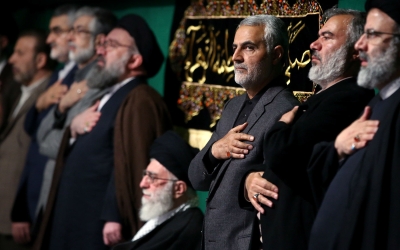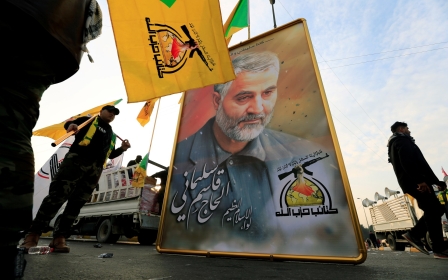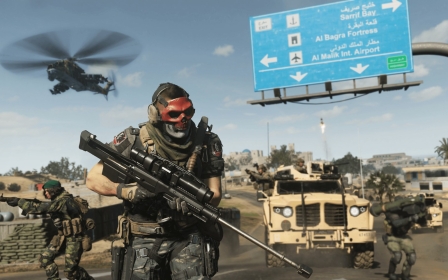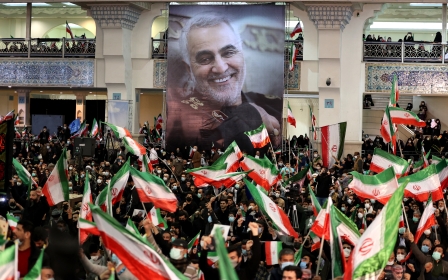Pompeo: ‘Only’ civilians on plane at risk in ‘Rembrandt’ Soleimani’s killing
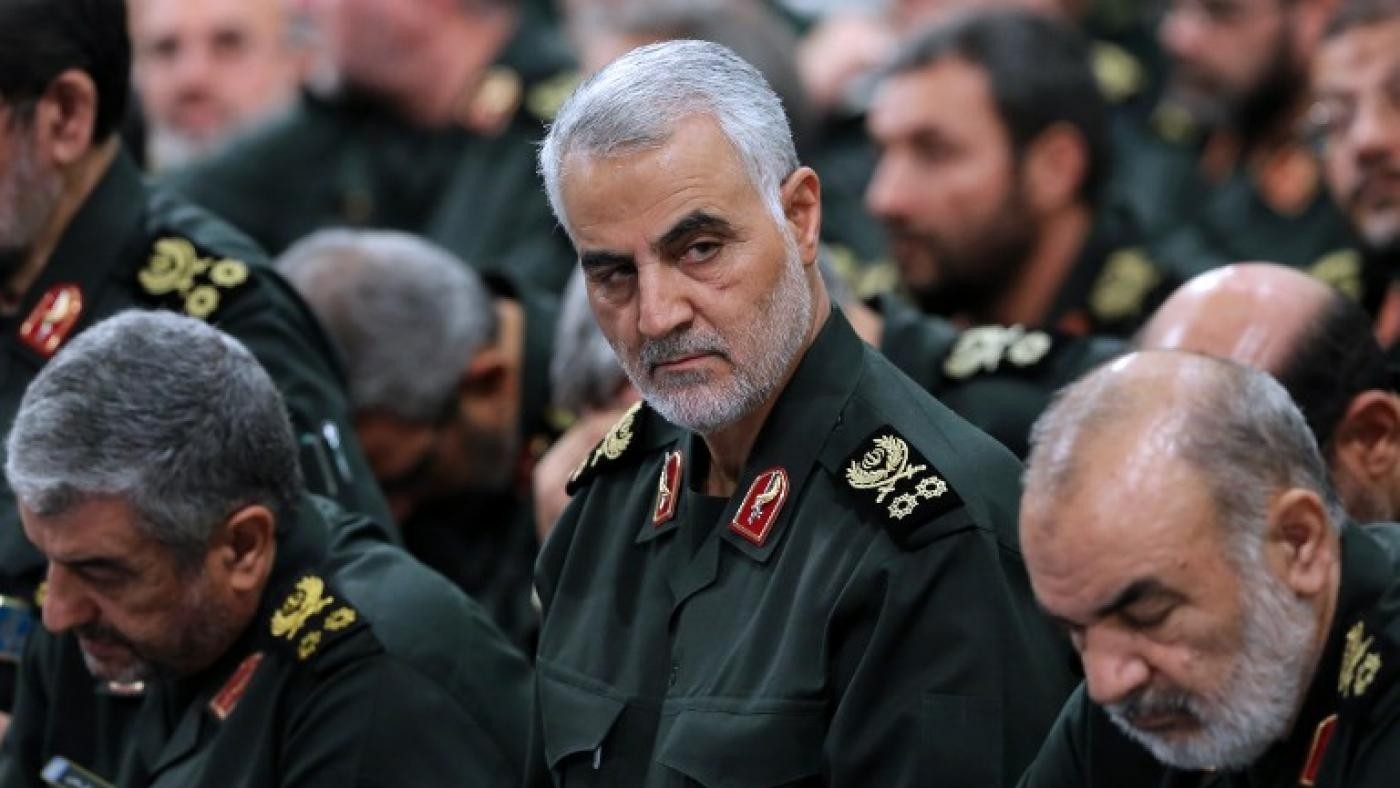
Former US Secretary of State Mike Pompeo has compared Qassem Soleimani to a Rembrandt painting and said the “only” civilians endangered by the US drone strike on the Iranian general were those also travelling on his commercial aircraft.
Soleimani, head of the Iranian Revolutionary Guard’s elite Quds Force and longtime US foe, was killed by a Reaper drone as he left Baghdad airport in the early hours of 3 January 2020.
In his memoir Never Give an Inch: Fighting for the America I Love, released on Tuesday, Pompeo says the Trump administration expected Soleimani to be quickly replaced with the next best option, but claims no one could match the general’s “combination of authority, brains, brutality, and public appeal inside Iran”.
“Trying to replace him would be like trying to replace an original Rembrandt. Good luck with that, as there is simply no good substitute,” he writes.
Pompeo, who was head of the CIA before becoming Donald Trump’s secretary of state in 2018, is dismissive of the risk to civilian lives the operation posed. He describes raising the complications surrounding a strike on an international airport “almost as an afterthought”.
New MEE newsletter: Jerusalem Dispatch
Sign up to get the latest insights and analysis on Israel-Palestine, alongside Turkey Unpacked and other MEE newsletters
'Hellfire missiles came screaming down. American power, American technology, and American justice slammed into his vehicle'
- Mike Pompeo
“I was comfortable with the risk, as we had a plan for controlling the airspace for the most important five minutes,” Pompeo recalls.
“The only civilians potentially in harm’s way would be those on Soleimani’s commercial aircraft.”
Middle East Eye reported at the time that Soleimani arrived at Baghdad airport on a Cham Wings flight from Damascus after visiting Beirut. His baggage and travel documents were handled by national security officials.
Soleimani was hit by a Hellfire missile as his convoy left the airport. The strike killed the general and nine others, including Abu Mahdi al-Muhandis, the godfather of Iraq's Iranian-backed paramilitaries.
“Hellfire missiles came screaming down. American power, American technology, and American justice slammed into his vehicle,” Pompeo writes.
An Iraqi paramilitary leader told MEE at the time that two cars passed Soleimani’s convoy before the strike, briefly jeopardising the operation.
Pompeo describes sending messages to Iran and “the ayatollah”, presumably meaning Supreme Leader Ali Khamenei. One said: “This was not an attempt to decapitate the regime.”
He also says the United States’ allies in the Middle East were aware of the impending strike.
“The Israelis also were ready, knowing that Iran could choose to retaliate against them. In the same way, we had worked with our Gulf Arab partners, giving them a heads-up without revealing our specific plans,” he says.
Pompeo, who is expected to declare his intention to be a Republican candidate in the 2024 US presidential election, says he expects retaliation from Iran to this day.
“We know Iran has the capabilities to operate inside the United States, so a year and a half after leaving public service, I still retain a security detail,” he writes.
“Trip to the grocery store? Diplomatic security will shadow me while I evaluate which eggplant looks the ripest. Susan’s going to get her hair done? Let’s hope Hezbollah sleeper agents aren’t casing the salon. Son’s getting marred? Agents will need to send an advance team to the church.”
“I will probably never drive my own car again or enjoy the level of privacy that I once had,” he adds.
Soleimani's killing, which was preceded by escalating violence between the United States and Iran and its allies, prompted Tehran to fire a barrage of missiles at US targets in Iraq in retaliation, wounding several American soldiers.
Expecting a US attack following the missile strike, Iranian forces mistakenly shot down a Ukrainian passenger jet, killing all 176 passengers and crew.
Middle East Eye delivers independent and unrivalled coverage and analysis of the Middle East, North Africa and beyond. To learn more about republishing this content and the associated fees, please fill out this form. More about MEE can be found here.


